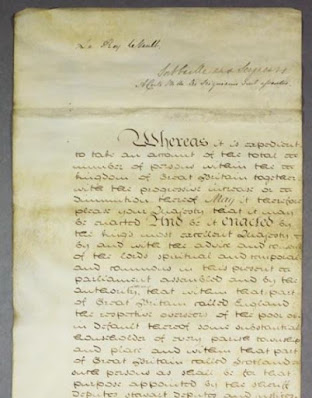Preserving letters for future generations
I started to think about how to preserve my family's letters and other personal documents, like my mother's recipies, some of which are written on scraps of paper. After some research I came across a very practical answer here : http://practicalarchivist.com/howto-preserve-love-letters/
This is a blog by Sally Jacobs, who is an archivist, and her site has lots of information about archiving (as you would expect!) http://practicalarchivist.com/ . She has several practical articles, and an online store. Thanks Sally for the great information!
The National Archives of Aust. here: http://www.naa.gov.au/records-management/agency/preserve/physical-preservation/index.aspx has some great information on records preservation that is definitely worth reading first, and is the most comprehensive. They have information on everything from paper to gramophone discs and magnetic media. This will prove useful for my wedding tape, which is on the old reel to reel tape!

This is a blog by Sally Jacobs, who is an archivist, and her site has lots of information about archiving (as you would expect!) http://practicalarchivist.com/ . She has several practical articles, and an online store. Thanks Sally for the great information!
The National Archives of Aust. here: http://www.naa.gov.au/records-management/agency/preserve/physical-preservation/index.aspx has some great information on records preservation that is definitely worth reading first, and is the most comprehensive. They have information on everything from paper to gramophone discs and magnetic media. This will prove useful for my wedding tape, which is on the old reel to reel tape!

Of course, one decision you must make is whether to digitise your documents. This means scanning them and storing them on a computer. Digitisation has the advantage that you don't have to keep the original document, you can toss it out (I never would be able to). The disadvantage is that it takes a lot of time. One reason I use the Legacy program is that scanning and storing a document is so easy through Legacy.
Digitisation can reduce clutter! I do think that being able to see the real thing can bring information to life though. Storage of digitised information must also be considered, We back up onto a portable hard drive, but the cloud is definitely an option now. After all, if the house burnt down the hard drive would go too.
The NAA also have information on recovery of records after a flood! A very useful article for Aussies I think! You will also find a list of suppliers that they recommend. In Australia, I have found http://archivalsurvival.com.au/index.htm a good place for archival supplies. Although the articles are written for Commonwealth Departments, they are practical and useful for the rest of us too. Much of the advise is around NOT handling things unnecessarily, NOT putting anything, like paper clips or staples into or on documents. Good advice!
Another thing to consider is who is going to read them and when. My love letters from my husband will stay stored away until after we are no longer here! Consider listing them as an heirloom for the family so they are not missed however.
Having looked at a lot of advice here are a few tips:
- Paper can be preserved beautifully for generations in simple acid free paper and boxes.
- Don't keep them in plastic folders as older paper can "cook" in these. (even archive quality).
- Much more important than any sleeve is WHERE you put the box. Keeping it somewhere with the most level temperature and humidity possible is important. Top shelf of the closet is often the best place.
.............................................................

Comments
Post a Comment
Thank you for your comment on my Blog. I love to get feedback and information to share from my readers.
To keep up to date simply follow me on facebook or subscribe using the button at the top of the blog page.
Barb